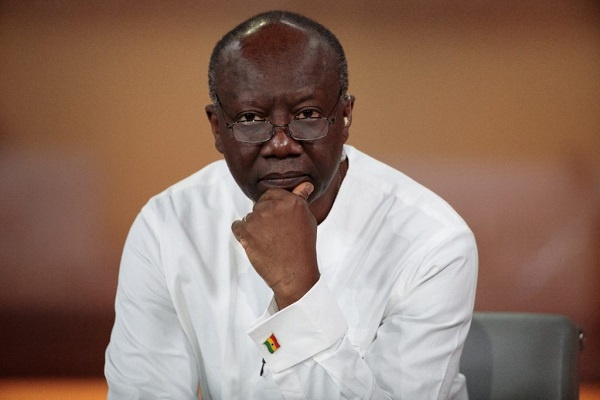Ghana’s economic outlook downgrade to negative
Ghana unable to issue bonds on the international market in 2022, Fitch
Government risks ability to meet medium-term financing needs, Ratings agency
Ghana’s Long-Term Foreign-Currency Issuer Default Rating (IDR) has been downgraded to ‘B-’ from an earlier ‘B’ rating.
According to the international ratings agency Fitch, this spells out a negative economic outlook for Ghana.
Fitch, in its latest report, explained the downgrade of Ghana’s IDRs and Negative Outlook reflect the sovereign’s loss of the country’s access to international capital markets in the second-half of 2021, following a pandemic-related [COVID-19] surge in government debt.
“This comes in the context of uncertainty about the government’s ability to stabilise debt and against a backdrop of tightening global financing conditions. In our view, Ghana’s ability to deliver on planned fiscal consolidation efforts could be hindered by the heavier reliance on domestic debt issuance with higher interest costs, in the context of an already exceptionally high interest expenditure to revenue ratio,” Fitch said in its report on Ghana.
The agency further said Ghana’s effective loss of market access to international bond markets also increases risks to its ability to meet medium-term financing needs.
It however pointed, “in our view, Ghana has sufficient liquidity and other available external financing options to cover near-term debt servicing without Eurobond issuance. However, there is a risk that non-resident investors in the local bond market could sell their holdings, particularly if confidence in the government’s fiscal consolidation strategy further weakens, placing downward pressure on its reserves.”
Additionally, Fitch said it assumes Ghana will not be able to, in 2022, issue further bonds on the international capital markets while any other prospects for issuing bonds in 2023 also remain uncertain.
“Ghana’s international reserve position has become highly reliant on annual Eurobond issuance. Moreover, as of July 2021, non-resident investors held just below 20% ($5.8 billion) of Ghana’s outstanding domestic government debt. While the maturity of these holdings is long-term, an outflow would put additional downward pressure on Ghana’s reserves,” it explained in its report.
Fitch also predicted that Ghana will face approximately US$2.7 billion (3.3% of GDP) in sovereign external interest service and amortisation payments in 2022.
“We believe that the government can meet its external debt servicing without market access given its reserves, which we estimate at $7.9 billion at end-2021 (3.2 months of current external payments).
“Reserves were bolstered by $3 billion in Eurobonds in second quarter 2021, which helped the government to meet its approximately $3.5 billion (4.7% of GDP) in sovereign external debt servicing costs last year, and by the $1 billion IMF SDR allocations,” it explained.
